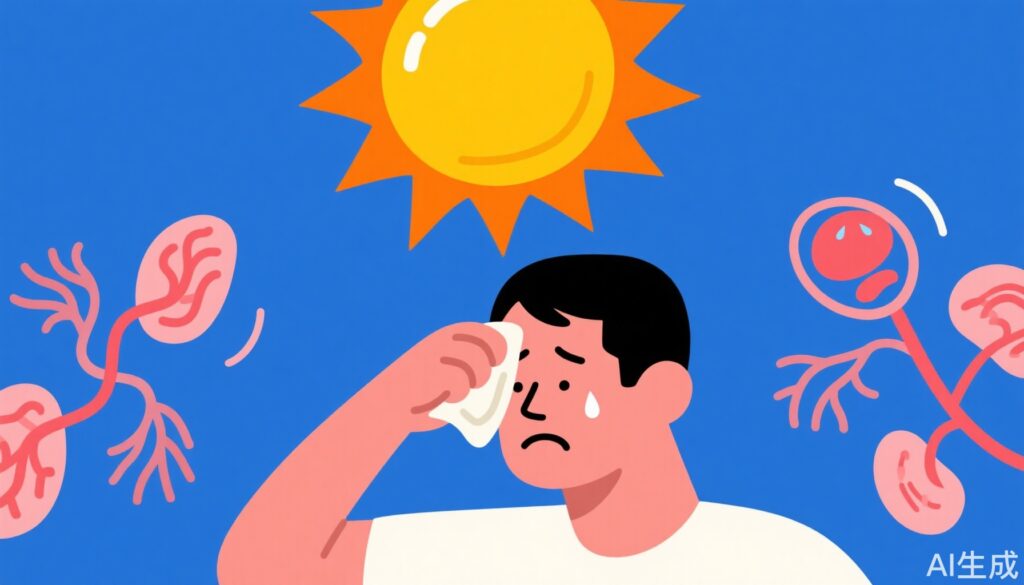Introduction: The Body’s Dialogue with Summer Heat
As summer heatwaves sweep in, your body initiates a complex “high-temperature crisis meeting” to cope with the stress. Skin sweats profusely to cool down, the heart races like a drumbeat, and the digestive system slows, reluctant to work. Each organ communicates through unique signals. Understanding these “body whispers” is key to maintaining health and avoiding heatstroke during the scorching summer days. Let’s explore these signals and learn how to respond effectively.
1. Brain: Don’t Let Me Overheat!
The brain is among the most vulnerable organs during high temperatures. Excessive heat causes symptoms like dizziness, headaches, fatigue, and difficulty concentrating. In severe cases, it can lead to brain damage. To protect your brain, avoid going outdoors during peak heat hours, typically between 10 a.m. and 4 p.m. Applying a cool towel to your forehead provides gentle care and helps regulate brain temperature.
2. Skin: I Need to Release Heat!
Your skin acts as your body’s natural air conditioner by sweating to regulate temperature. However, excessive sweating without adequate hydration causes dryness and distress. Always replenish fluids by drinking plain water, lightly salted water, or electrolyte beverages to maintain hydration. Keep your skin clean and protect it from sunburn to support its cooling function.
3. Heart: Don’t Overwork Me!
High temperatures increase your heart rate as it works overtime to cool your body. If you experience chest tightness or palpitations, it’s your heart signaling that it needs rest. Avoid strenuous exercise, especially in hot environments. Instead, opt for light activities during cooler times like early morning or evening, such as jogging, walking, or yoga. Eating fresh fruits and vegetables rich in potassium helps support heart function.
4. Digestive System: Give Me a Break!
Heat can reduce digestive efficiency. Consuming greasy or spicy foods adds strain, leading to discomfort. Eat light, easily digestible meals like fruits, vegetables, and porridge. Eating small, frequent meals helps your digestive system manage the summer heat more comfortably.
5. Whole Body: Provide a Cool Environment!
When feeling hot and fatigued, your entire body is signaling for relief. Use air conditioning or fans to cool your surroundings, and increase humidity by placing a basin of cold water indoors. Visiting cool public spaces like libraries or shopping malls can also offer respite from the heat.
6. Emergency Signals: Beware of Heatstroke
Serious signs such as nausea, hot dry skin without sweating, headaches, dizziness, confusion, or loss of consciousness indicate heatstroke, an urgent medical emergency. If you notice these symptoms, immediately move to a shaded or air-conditioned area, hydrate, and cool your body with damp towels. Seek emergency medical care without delay if symptoms worsen.
Conclusion
Recognizing your body’s signals during hot weather is essential for preventing heat-related illnesses. By staying hydrated, protecting your skin, moderating physical activity, and maintaining a cool environment, you can safely enjoy the summer while safeguarding your health.



